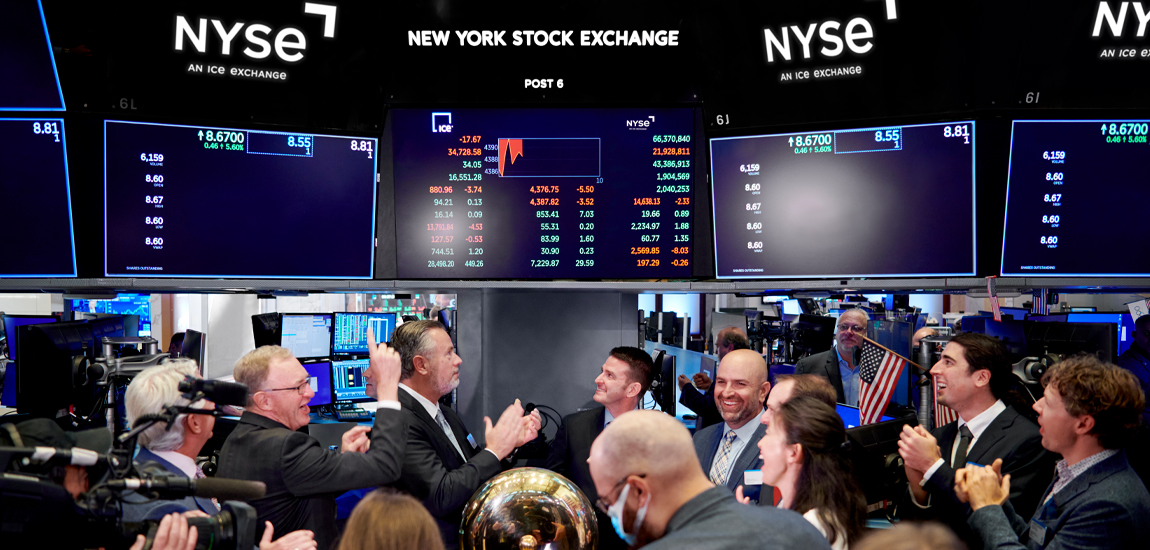What is the New York Stock Exchange?
The New York Stock Exchange (NYSE) is a premier global exchange that facilitates the buying and selling of securities for a diverse range of companies listed on the NYSE. With a rich history dating back to 1792, the NYSE has evolved into a leading platform for companies to raise capital, increase their visibility, and provide liquidity to investors. As the largest stock exchange in the world by total market capitalization of its listed companies, the NYSE plays a critical role in shaping the global financial landscape. The exchange is home to over 2,400 companies listed on the NYSE, representing a wide range of industries, sectors, and geographies. The NYSE’s reputation for transparency, regulatory oversight, and high listing standards has made it an attractive platform for companies seeking to go public and for investors looking to invest in companies listed on the NYSE.
How to Research and Find Companies Listed on the NYSE
Researching and finding companies listed on the NYSE can be a daunting task, especially for those new to the world of publicly traded companies. However, with the right tools and resources, investors and researchers can easily access a vast array of information on companies listed on the NYSE. One of the most popular resources for finding companies listed on the NYSE is the exchange’s official website, which provides a comprehensive list of all listed companies, along with their ticker symbols, industry classifications, and other relevant information. Additionally, online databases such as EDGAR and Bloomberg Terminal offer a wealth of information on companies listed on the NYSE, including financial statements, news articles, and analyst reports. Financial websites such as Yahoo Finance and Google Finance also provide real-time data and news on companies listed on the NYSE, making it easy to stay up-to-date with market trends and developments. Furthermore, investors can also utilize stock screeners and other online tools to filter and sort companies listed on the NYSE based on specific criteria, such as market capitalization, industry, and dividend yield. By leveraging these resources, investors and researchers can gain a deeper understanding of companies listed on the NYSE and make more informed investment decisions.
The Largest and Most Influential Companies on the NYSE
The NYSE is home to some of the largest and most influential companies in the world, spanning a diverse range of industries and sectors. In the technology sector, companies listed on the NYSE such as IBM, Intel, and Cisco Systems are leaders in innovation and driving growth in the global economy. In the finance sector, companies listed on the NYSE like JPMorgan Chase, Bank of America, and Citigroup are among the largest financial institutions in the world, providing critical financial services to individuals and businesses alike. The healthcare sector is also well-represented on the NYSE, with companies listed on the NYSE such as Johnson & Johnson, Pfizer, and Merck & Co. leading the way in medical research and development. These companies, along with many others, are not only driving growth and innovation in their respective industries but also play a critical role in shaping the global economy. With their significant market capitalization and influence, companies listed on the NYSE have a profound impact on the global financial landscape. By investing in these companies, investors can gain exposure to a wide range of industries and sectors, providing a diversified portfolio and potential for long-term growth.
Benefits of Investing in NYSE-Listed Companies
Investing in companies listed on the NYSE can provide a range of benefits to investors. One of the primary advantages is liquidity, as NYSE-listed companies tend to have a large and active investor base, making it easier to buy and sell shares. Additionally, companies listed on the NYSE are subject to strict regulatory oversight, which can provide an added layer of transparency and accountability. This transparency can give investors greater confidence in their investment decisions, as they have access to detailed financial information and regular updates on company performance. Furthermore, the NYSE’s rigorous listing standards ensure that only companies that meet certain criteria are listed, providing an added layer of quality control. Investing in companies listed on the NYSE can also provide diversification benefits, as the exchange is home to companies from a wide range of industries and sectors. By investing in companies listed on the NYSE, investors can gain exposure to a diverse range of businesses and industries, reducing their overall risk and increasing their potential for long-term growth. Overall, the benefits of investing in companies listed on the NYSE make it an attractive option for investors seeking to build a diversified and successful investment portfolio.
Understanding the Listing Process: How Companies Get Listed on the NYSE
The process of getting listed on the NYSE is a rigorous and highly regulated one, designed to ensure that only companies that meet certain standards are able to list on the exchange. To be eligible for listing, companies must meet certain financial and liquidity requirements, including a minimum market capitalization of $40 million and a minimum of 1.1 million publicly held shares. Companies must also demonstrate a certain level of profitability and cash flow, as well as a strong corporate governance structure. Once a company has met these requirements, it must submit an application to the NYSE, which includes providing detailed financial information and undergoing a thorough review process. If the application is approved, the company will be required to pay a listing fee, which can range from $50,000 to $250,000 depending on the company’s market capitalization. Companies listed on the NYSE are also subject to ongoing listing standards, which include requirements for financial reporting, corporate governance, and shareholder communication. By understanding the listing process, investors can gain a better appreciation for the quality and integrity of companies listed on the NYSE, and make more informed investment decisions. With its rigorous listing standards and regulatory oversight, the NYSE provides a platform for companies listed on the NYSE to access capital, increase their visibility, and grow their business.
NYSE-Listed Companies Across Various Industries
The NYSE is home to a diverse range of companies listed on the NYSE, spanning various industries and sectors. One of the most prominent industries represented on the NYSE is energy, with companies such as ExxonMobil, Chevron, and ConocoPhillips leading the way. These companies listed on the NYSE are involved in the exploration, production, and distribution of oil and natural gas, and play a critical role in meeting the world’s energy demands. Another significant industry represented on the NYSE is consumer goods, with companies such as Procter & Gamble, Coca-Cola, and PepsiCo offering a wide range of products to consumers around the world. The NYSE is also home to a number of prominent industrial companies, including 3M, Boeing, and Caterpillar, which provide essential goods and services to industries such as manufacturing, aerospace, and construction. In addition to these industries, the NYSE is also home to companies listed on the NYSE in the financial, healthcare, technology, and real estate sectors, among others. This diversity of industries and sectors provides investors with a wide range of opportunities to invest in companies listed on the NYSE, and to build a diversified portfolio that meets their investment goals. By understanding the various industries and sectors represented on the NYSE, investors can make more informed investment decisions and take advantage of the many benefits of investing in companies listed on the NYSE.
The Role of the NYSE in the Global Economy
The NYSE plays a vital role in the global economy, serving as a hub for international trade, economic growth, and job creation. As one of the largest and most liquid stock exchanges in the world, the NYSE provides a platform for companies listed on the NYSE to access capital from investors around the globe. This, in turn, enables these companies to invest in research and development, expand their operations, and create jobs, ultimately driving economic growth. The NYSE also facilitates international trade by providing a marketplace for companies to raise capital and invest in foreign markets. This helps to promote cross-border trade and investment, fostering economic cooperation and development between nations. Furthermore, the NYSE’s regulatory oversight and transparency requirements help to maintain investor confidence and stability in the global financial system. By providing a platform for companies listed on the NYSE to raise capital and invest in growth opportunities, the NYSE plays a critical role in supporting economic development and job creation around the world. With its global reach and influence, the NYSE is a key driver of economic growth and prosperity, and its importance cannot be overstated.
Staying Up-to-Date with NYSE-Listed Companies: News and Trends
Staying informed about the latest news and trends related to companies listed on the NYSE is crucial for investors, analysts, and anyone interested in the stock market. With the vast amount of information available, it can be overwhelming to keep up with the latest developments. However, there are several resources and tips that can help individuals stay up-to-date with NYSE-listed companies. Financial news websites such as Bloomberg, CNBC, and Reuters provide real-time news and analysis on companies listed on the NYSE. Stock market apps like Robinhood, E-Trade, and Fidelity offer users access to market data, news, and research on NYSE-listed companies. Social media platforms like Twitter and LinkedIn are also valuable resources, as many companies listed on the NYSE have official accounts that provide updates on their operations and performance. Additionally, investors can set up customized news feeds and alerts to receive notifications on specific companies listed on the NYSE. By leveraging these resources and staying informed, individuals can make more informed investment decisions and stay ahead of the curve in the rapidly changing world of publicly traded companies. Furthermore, companies listed on the NYSE often provide investor presentations, earnings reports, and other materials on their websites, which can provide valuable insights into their operations and performance. By staying up-to-date with the latest news and trends related to companies listed on the NYSE, investors can gain a competitive edge and make more informed investment decisions.




